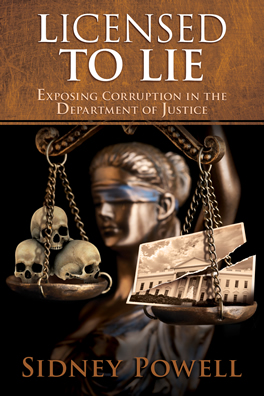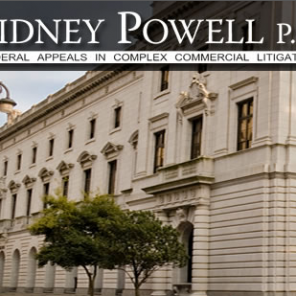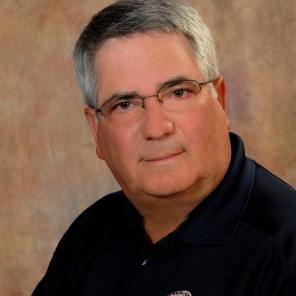Model Rules of Professional Conduct Governing Federal Prosecutors
ABA Model Rules of Professional Conduct (2013)
Rule 3.8 Special Responsibilities Of A Prosecutor
The prosecutor in a criminal case shall:
(a) refrain from prosecuting a charge that the prosecutor knows is not supported by probable cause;
(b) make reasonable efforts to assure that the accused has been advised of the right to, and the procedure for obtaining, counsel and has been given reasonable opportunity to obtain counsel;
(c) not seek to obtain from an unrepresented accused a waiver of important pretrial rights, such as the right to a preliminary hearing;
(d) make timely disclosure to the defense of all evidence or information known to the prosecutor that tends to negate the guilt of the accused or mitigates the offense, and, in connection with sentencing, disclose to the defense and to the tribunal all unprivileged mitigating information known to the prosecutor, except when the prosecutor is relieved of this responsibility by a protective order of the tribunal;
(e) not subpoena a lawyer in a grand jury or other criminal proceeding to present evidence about a past or present client unless the prosecutor reasonably believes:
(1) the information sought is not protected from disclosure by any applicable privilege;
(2) the evidence sought is essential to the successful completion of an ongoing investigation or prosecution; and
(3) there is no other feasible alternative to obtain the information;
(f) except for statements that are necessary to inform the public of the nature and extent of the prosecutor’s action and that serve a legitimate law enforcement purpose, refrain from making extrajudicial comments that have a substantial likelihood of heightening public condemnation of the accused and exercise reasonable care to prevent investigators, law enforcement personnel, employees or other persons assisting or associated with the prosecutor in a criminal case from making an extrajudicial statement that the prosecutor would be prohibited from making under Rule 3.6 or this Rule.
(g) When a prosecutor knows of new, credible and material evidence creating a reasonable likelihood that a convicted defendant did not commit an offense of which the defendant was convicted, the prosecutor shall:
(1) promptly disclose that evidence to an appropriate court or authority, and
(2) if the conviction was obtained in the prosecutor’s jurisdiction,
(i) promptly disclose that evidence to the defendant unless a court authorizes delay, and
(ii) undertake further investigation, or make reasonable efforts to cause an investigation, to determine whether the defendant was convicted of an offense that the defendant did not commit.
(h) When a prosecutor knows of clear and convincing evidence establishing that a defendant in the prosecutor’s jurisdiction was convicted of an offense that the defendant did not commit, the prosecutor shall seek to remedy the conviction.
Rule 3.8 Special Responsibilities Of A Prosecutor - Comment
[1] A prosecutor has the responsibility of a minister of justice and not simply that of an advocate. This responsibility carries with it specific obligations to see that the defendant is accorded procedural justice, that guilt is decided upon the basis of sufficient evidence, and that special precautions are taken to prevent and to rectify the conviction of innocent persons. The extent of mandated remedial action is a matter of debate and varies in different jurisdictions. Many jurisdictions have adopted the ABA Standards of Criminal Justice Relating to the Prosecution Function, which are the product of prolonged and careful deliberation by lawyers experienced in both criminal prosecution and defense. Competent representation of the sovereignty may require a prosecutor to undertake some procedural and remedial measures as a matter of obligation. Applicable law may require other measures by the prosecutor and knowing disregard of those obligations or a systematic abuse of prosecutorial discretion could constitute a violation of Rule 8.4.
[2] In some jurisdictions, a defendant may waive a preliminary hearing and thereby lose a valuable opportunity to challenge probable cause. Accordingly, prosecutors should not seek to obtain waivers of preliminary hearings or other important pretrial rights from unrepresented accused persons. Paragraph (c) does not apply, however, to an accused appearing pro se with the approval of the tribunal. Nor does it forbid the lawful questioning of an uncharged suspect who has knowingly waived the rights to counsel and silence.
[3] The exception in paragraph (d) recognizes that a prosecutor may seek an appropriate protective order from the tribunal if disclosure of information to the defense could result in substantial harm to an individual or to the public interest.
[4] Paragraph (e) is intended to limit the issuance of lawyer subpoenas in grand jury and other criminal proceedings to those situations in which there is a genuine need to intrude into the client-lawyer relationship.
[5] Paragraph (f) supplements Rule 3.6, which prohibits extrajudicial statements that have a substantial likelihood of prejudicing an adjudicatory proceeding. In the context of a criminal prosecution, a prosecutor’s extrajudicial statement can create the additional problem of increasing public condemnation of the accused. Although the announcement of an indictment, for example, will necessarily have severe consequences for the accused, a prosecutor can, and should, avoid comments which have no legitimate law enforcement purpose and have a substantial likelihood of increasing public opprobrium of the accused. Nothing in this Comment is intended to restrict the statements which a prosecutor may make which comply with Rule 3.6(b) or 3.6(c).
[6] Like other lawyers, prosecutors are subject to Rules 5.1 and 5.3, which relate to responsibilities regarding lawyers and nonlawyers who work for or are associated with the lawyer’s office. Paragraph (f) reminds the prosecutor of the importance of these obligations in connection with the unique dangers of improper extrajudicial statements in a criminal case. In addition, paragraph (f) requires a prosecutor to exercise reasonable care to prevent persons assisting or associated with the prosecutor from making improper extrajudicial statements, even when such persons are not under the direct supervision of the prosecutor. Ordinarily, the reasonable care standard will be satisfied if the prosecutor issues the appropriate cautions to law- enforcement personnel and other relevant individuals.
[7] When a prosecutor knows of new, credible and material evidence creating a reasonable likelihood that a person outside the prosecutor’s jurisdiction was convicted of a crime that the person did not commit, paragraph (g) requires prompt disclosure to the court or other appropriate authority, such as the chief prosecutor of the jurisdiction where the conviction occurred. If the conviction was obtained in the prosecutor’s jurisdiction, paragraph (g) requires the prosecutor to examine the evidence and undertake further investigation to determine whether the defendant is in fact innocent or make reasonable efforts to cause another appropriate authority to undertake the necessary investigation, and to promptly disclose the evidence to the court and, absent court-authorized delay, to the defendant. Consistent with the objectives of Rules 4.2 and 4.3, disclosure to a represented defendant must be made through the defendant’s counsel, and, in the case of an unrepresented defendant, would ordinarily be accompanied by a request to a court for the appointment of counsel to assist the defendant in taking such legal measures as may be appropriate.
[8] Under paragraph (h), once the prosecutor knows of clear and convincing evidence that the defendant was convicted of an offense that the defendant did not commit, the prosecutor must seek to remedy the conviction. Necessary steps may include disclosure of the evidence to the defendant, requesting that the court appoint counsel for an unrepresented indigent defendant and, where appropriate, notifying the court that the prosecutor has knowledge that the defendant did not commit the offense of which the defendant was convicted.
[9] A prosecutor’s independent judgment, made in good faith, that the new evidence is not of such nature as to trigger the obligations of sections (g) and (h), though subsequently determined to have been erroneous, does not constitute a violation of this Rule.
Rule 8.3 Reporting Professional Misconduct
(a) A lawyer who knows that another lawyer has committed a violation of the Rules of Professional Conduct that raises a substantial question as to that lawyer’s honesty, trustworthiness or fitness as a lawyer in other respects, shall inform the appropriate professional authority.
(b) A lawyer who knows that a judge has committed a violation of applicable rules of judicial conduct that raises a substantial question as to the judge’s fitness for office shall inform the appropriate authority.
(c) This Rule does not require disclosure of information otherwise protected by Rule 1.6 or information gained by a lawyer or judge while participating in an approved lawyers assistance program.
Rule 8.3 Reporting Professional Misconduct - Comment
[1] Self-regulation of the legal profession requires that members of the profession initiate disciplinary investigation when they know of a violation of the Rules of Professional Conduct. Lawyers have a similar obligation with respect to judicial misconduct. An apparently isolated violation may indicate a pattern of misconduct that only a disciplinary investigation can uncover. Reporting a violation is especially important where the victim is unlikely to discover the offense.
[2] A report about misconduct is not required where it would involve violation of Rule 1.6. However, a lawyer should encourage a client to consent to disclosure where prosecution would not substantially prejudice the client’s interests.
[3] If a lawyer were obliged to report every violation of the Rules, the failure to report any violation would itself be a professional offense. Such a requirement existed in many jurisdictions but proved to be unenforceable. This Rule limits the reporting obligation to those offenses that a self-regulating profession must vigorously endeavor to prevent. A measure of judgment is, therefore, required in complying with the provisions of this Rule. The term “substantial” refers to the seriousness of the possible offense and not the quantum of evidence of which the lawyer is aware. A report should be made to the bar disciplinary agency unless some other agency, such as a peer review agency, is more appropriate in the circumstances. Similar considerations apply to the reporting of judicial misconduct.
[4] The duty to report professional misconduct does not apply to a lawyer retained to represent a lawyer whose professional conduct is in question. Such a situation is governed by the Rules applicable to the client-lawyer relationship.
[5] Information about a lawyer’s or judge’s misconduct or fitness may be received by a lawyer in the course of that lawyer’s participation in an approved lawyers or judges assistance program. In that circumstance, providing for an exception to the reporting requirements of paragraphs (a) and (b) of this Rule encourages lawyers and judges to seek treatment through such a program. Conversely, without such an exception, lawyers and judges may hesitate to seek assistance from these programs, which may then result in additional harm to their professional careers and additional injury to the welfare of clients and the public. These Rules do not otherwise address the confidentiality of information received by a lawyer or judge participating in an approved lawyers assistance program; such an obligation, however, may be imposed by the rules of the program or other law.











Comments are closed.